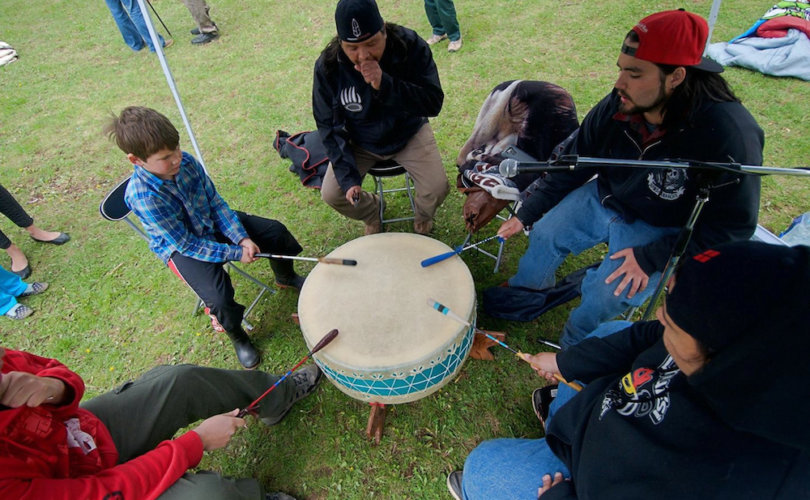OTTAWA, October 14, 2016 (LifeSiteNews) — The Canadian Catholic bishops announced Wednesday they have withdrawn from the ecumenical social justice coalition Kairos.
In a carefully worded October 12 press release, the Canadian Conference of Catholic Bishops stated: “The way Kairos is structured, while perfectly legitimate, does not foster the kind of ecumenical engagement [the bishops] need and require.”
The CCCB “remains committed to working ecumenically on justice and peace initiatives which are in keeping with fundamental principles of ecumenism,” the release stated.
“Kudos to the bishops,” Jim Hughes, president of Campaign Life Coalition, told LifeSiteNews. “It’s a bold move, and it was most necessary.”
However, the Canadian Catholic Organization for Development and Peace and the Canadian Religious Conference remain members of Kairos, a coalition of now 10 members from seven Christian churches that was founded in 2001 and is administered by the United Church.
The organization, and the bishops' role in it, has faced criticism from faithful Catholics for many years.
In a 2009 analysis, Fr. Alphonse de Valk, then editor of Catholic Insight Magazine, called on the bishops to drop out. “The philosophy of the group is essentially that of the United Church, which has become increasingly a leftist lobby group while scuttling its Christian convictions,” wrote Father de Valk.
He pointed out that the United Church had been derided in the National Post as “just another left-wing tea-and-biscuit talk shop for supporters of gay marriage, unregulated abortion and Palestinian rights.”
The Conservatives had earlier that year cut federal funding to Kairos, with then-Immigration Minister Jason Kenney telling a forum in Israel it was because of the group’s anti-Israel bias.
While the Conservatives were criticized in the press and by Kairos, which claimed that they had been labeled “anti-Semitic,” Fr. de Valk pointed out that the United Church General Council had put forward resolutions in August 2009 to boycott “academic and cultural, national and international” Israeli institutions. When those did not pass, the UCGC pushed for an economic boycott of Israel, which was also repudiated.
Rosie DiManno of the Star noted at the time that Kairos was “intimately aligned with other groups, internationally, that have aggressively called for economic and academic boycotts against Israel,” including the Sabeel Ecumenical Liberation Center of Jerusalem, “a Palestinian Christian organization dismissed by its critics as a ‘fraudulent peace group’ with a ‘racist road show.’” Sabeel is a current partner of Kairos.
The Conservatives were lauded by REAL Women vice president Gwen Landolt, who described Kairos as “an umbrella group representing the left-leaning elements in Canadian churches,” adding that “many churchgoers object to government funding of leftist influences in their churches and were grateful for funding cuts to Kairos.”
Kairos currently advocates for aboriginal Canadians, for the rights of migrants and for women facing violence.
It also lobbies for government action on climate change and supports the environmental activism of the United Nations: for example, urging the Conservatives to back the Copenhagen Climate Bill, which came out of the UN 2009 Copenhagen Climate Change Conference.
Pro-life and pro-family advocates have long warned that the environmental agenda is being used to push for global governance that would lead to enforced population control measures worldwide, as noted by LifeSiteNews’ Jeanne Smits before the November 2015 Paris climate conference.
The CCCB release stated that “[i]n the conversations leading up to this decision, the Bishops expressed particular appreciation for the attention KAIROS gives to Indigenous rights and to the environment, while acknowledging that the CCCB may often take a different approach to these important themes.”
Hamilton Bishop Doug Crosby, the CCCB's president, informed Kairos of the decision in an October 7 letter in which he “expressed gratitude that Catholic participation on KAIROS would continue by means of other Catholic groups and organizations.”
Bishop Crosby further hoped that “in the future there would be not only a continuing exchange of information between KAIROS and the CCCB but also consideration of occasional cooperation on a project to project basis.”

